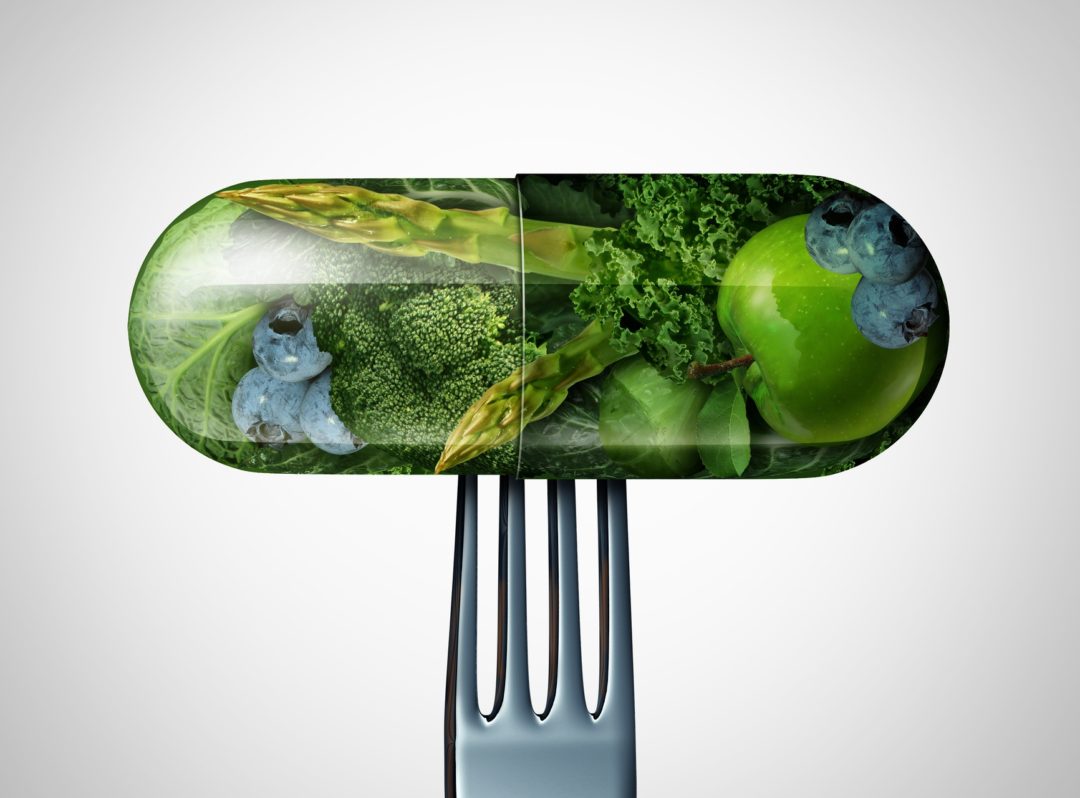I never—repeat never—recommend that people do what I do. My mantra for my entire career has been “biochemical individuality.” No two people are completely alike metabolically, hormonally, psychologically or, really, any other way you can think of. At the very least, we’re different enough that we require different diets (or variations of diets), different exercise programs, and different supplementation plans.
Nevertheless, the supplements I take include some basics that I think almost anyone would benefit from and a few that I believe would be helpful for most. In the interests of transparency, I’ve listed the exact brands and doses I take, but feel free to substitute another brand for any of my favorites.
So, in no particular order of importance, here is my current vitamin and supplement regimen.
- Fish Oil.
Remember that plant-based omega-3s aren’t as powerful as the ones found in animal products. They have to be converted in the body to the omega-3s that are naturally found in wild salmon. So if you’re a vegetarian, double (or triple) up on flaxseed oil to make sure enough of it gets converted! My personal brand for fish or flax oil is Barlean’s. I personally take either Ultra EPA-DHA or Seriously Delicious Omega-3 from fish oil (the Passion Pineapple Smoothie is my favorite).
2) Magnesium.
In the first edition of my book, The Most Effective Natural Cures on Earth, I had a chapter called “Desert Island Cures” in which I listed vitamins, minerals, herbs, botanicals or nutraceuticals that had such numerous and wide-reaching effects that I’d choose them for a nutritional “first-aid” kit if I were stranded on a desert island. Magnesium was one of those nutrients.
First of all, it’s needed for over 300 biochemical operations. Second of all, it’s a relaxer—it “brings stuff down” (like blood pressure and blood sugar). (Epsom salts baths are relaxing because they’re so high in magnesium!)
And number three—every survey or study I’ve ever seen estimates that around 70-75% of the U.S. population doesn’t get even the paltry amount in the RDAs.
I’ve fluctuated on brands with magnesium, but I currently alternate between two excellent products: Ionic-Fizz Magnesium Plus by Pure Essence Labs, and StressX by Trace Minerals Research. Both are terrific.
3)Vitamin D.
The most common symptoms of low vitamin D include bone pain, fatigue, muscle pain, mood changes (depression) and wounds taking a long time to heal (1). And that’s just the beginning...the list of conditions associated with low levels of vitamin D is scarily long and includes bone metabolic disorders, tumors, cardiovascular disease and diabetes. What’s more, every survey and study I’ve ever seen shows that a double-digit percentage of Americans have significantly less than optimal levels of vitamin D in their blood. I live in Southern California and play tennis outdoors and I still take 5,000 IUs daily. I use Terry Naturally’s Artery Strong which combines 5,000 IUs of vitamin D3 with vitamin A and vitamin K2.
4) Multiple Vitamin:
I always recommend a multiple to everyone, because it fills in all the gaps that might be missing. I’m currently taking LifeEssence by Pure Essence Labs. It was formulated by the legendary Jery Cochern, and it has an elegant combination of essential vitamins, minerals and botanicals—including a full complement of B-vitamins—that serves as a terrific foundation for anything else you take.
5) Vitamin K-2
Vitamin K-2 might be the most important vitamin you never heard of.
Yet it’s critically important for both the heart and the bones. You see, vitamin K-2 acts as a calcium traffic cop—it takes the calcium you consume and makes sure it gets to the right place, which is the bones, teeth and skeletal system. Here’s where you don’t want calcium to end up: the arteries. (Remember the expression “calcification of the arteries?” That’s what they’re talking about!) Calcium in bones = good; calcium in arteries = really, really bad. K-2 makes sure that doesn’t happen.
K-2 isn’t easy to get from food. K-1 is easy to get—it’s in every green leafy vegetable, even iceburg lettuce. K-2, however, is mainly found in fermented foods like kimchi and in organ meats, neither of which are widely consumed in the U.S. You may be able to get K-2 in a multiple, but if not I strongly suggest taking a stand-alone. I like Weider’s Artery Strong, which is a nice dose of K-2 in what’s called the MK-7 form, the longest-lasting (and most expensive) form of this important fat-soluble vitamin.
Next month, I’ll share with you the rest of my daily supplement regimen—which includes a few things that might surprise you!
Note: The views and opinions expressed here are those of the author(s) and contributor(s) and do not necessarily reflect those of the publisher and editors of WholeFoods Magazine.










